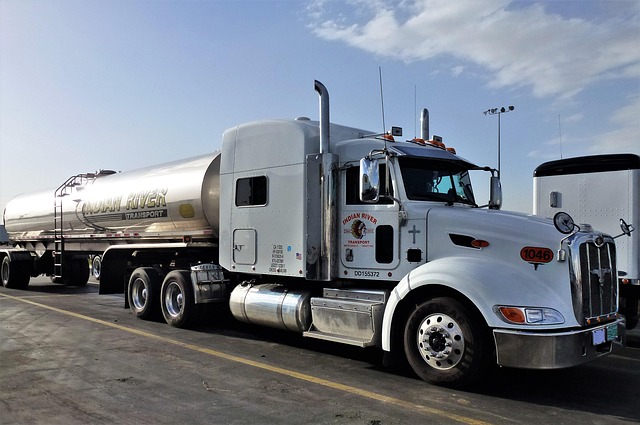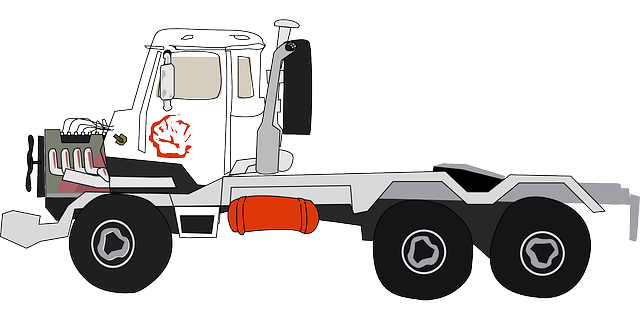Small trucking companies face unique challenges due to fluctuating workloads, diverse fleet sizes, and specialized equipment, making one-size-fits-all insurance inadequate. They require customized insurance solutions that offer flexible strategies addressing specific risks, opportunities, and individual needs like seasonal fluctuations. This ensures resilience in a dynamic market with changing regulations and safety standards, fostering proactive safety practices and long-term success for these businesses. Embracing technology in these tailored solutions streamlines operations, enhances communication, and provides cost-effective coverage.
In today’s dynamic business landscape, especially within the small trucking industry, insurance strategies must evolve alongside operational changes. This article explores tailored solutions for these unique challenges, focusing on how customized insurance plans can revolutionize protection for small trucking companies. We delve into market dynamics, offering strategies to adapt and stay competitive. Additionally, we highlight technology’s role in streamlining processes, ensuring efficiency and optimal risk management. Understanding the specific needs of this sector is key to navigating a constantly changing insurance environment.
Understanding the Unique Needs of Small Trucking Companies

Small trucking companies face unique challenges that demand a tailored approach to insurance. Their operations are often characterized by fluctuating workloads, diverse fleet sizes, and specialized equipment, making one-size-fits-all policies inadequate. These businesses require customized insurance solutions that account for their specific risks and opportunities. For instance, a small trucking company might need coverage for multiple vehicles, including trucks, trailers, and specialized hauling equipment, each with its own set of safety and maintenance requirements.
Moreover, these companies often operate in dynamic markets, navigating regulatory changes, safety standards, and competitive pressures. A flexible insurance strategy that adapts to these shifts is crucial. Customized insurance for small trucking companies should offer comprehensive protection against liability, property damage, and business interruption while allowing for adjustments based on individual company needs, such as seasonal fluctuations, new routes, or the acquisition of additional vehicles.
Customized Insurance Solutions: A Game-Changer for Trucking Businesses

In the competitive landscape of trucking, where operations are dynamic and risks are ever-present, customized insurance solutions have emerged as a game-changer for small trucking companies. Unlike one-size-fits-all policies, these tailored plans address the unique challenges faced by each business, from specific cargo types to route hazards and driver profiles. By offering flexible coverage options and specialized risk management strategies, insurers enable small trucking firms to mitigate potential losses effectively.
This personalized approach allows businesses to access competitive rates while ensuring they have the right protection in place. Moreover, it fosters a proactive relationship between carriers and their insurance partners, leading to better safety practices and operational efficiency. As small trucking companies navigate an increasingly complex regulatory environment and market pressures, customized insurance solutions provide the agility and coverage necessary for long-term success and resilience.
Strategies to Adapt and Evolve with Changing Market Dynamics

In today’s dynamic business landscape, especially within the small trucking industry, adapting insurance strategies is paramount to staying competitive and relevant. Customized insurance plans are the key to addressing the unique challenges faced by these companies. By analyzing their specific operations, risk profiles, and market positions, insurers can craft tailored policies that offer comprehensive coverage while optimizing costs. This personalized approach ensures that small trucking businesses receive fair treatment and protection, aligning with their evolving needs.
Navigating changing market dynamics requires a proactive mindset. Insurers should encourage regular communication with clients to understand emerging trends, regulatory changes, and new safety protocols within the industry. Incorporating this feedback allows for flexible insurance solutions, ensuring small trucking companies remain protected as their operations adapt and grow.
Maximizing Efficiency: Technology's Role in Streamlining Insurance Processes

In today’s digital age, technology plays a pivotal role in maximizing efficiency across various industries, and the insurance sector is no exception. For small trucking companies, adopting customized insurance solutions powered by advanced tech can revolutionize their operational processes. By implementing efficient digital platforms, these businesses can streamline claims management, policy issuance, and data analysis. Automated systems reduce manual errors, speed up turnaround times, and enable real-time tracking of assets and risks.
This technological integration allows for a more tailored approach to insurance for small trucking operations. Customized policies can be designed based on individual company needs, ensuring that specific risk factors are adequately addressed. Moreover, digital platforms facilitate easier communication between insurers and clients, fostering transparency and building stronger relationships. As a result, the entire insurance process becomes more accessible, efficient, and beneficial for both parties.
As business operations in the trucking industry continue to evolve, so do the unique risks and needs of small trucking companies. Adapting insurance strategies is crucial for their longevity and success. By offering customized insurance solutions tailored to these specific requirements, insurers can provide a competitive edge and peace of mind. Embracing market dynamics and leveraging technology are key strategies to stay ahead, ensuring efficient processes and cost-effective coverage for these vital businesses. This approach not only benefits trucking companies but also contributes to a more robust and adaptable insurance sector as a whole.
